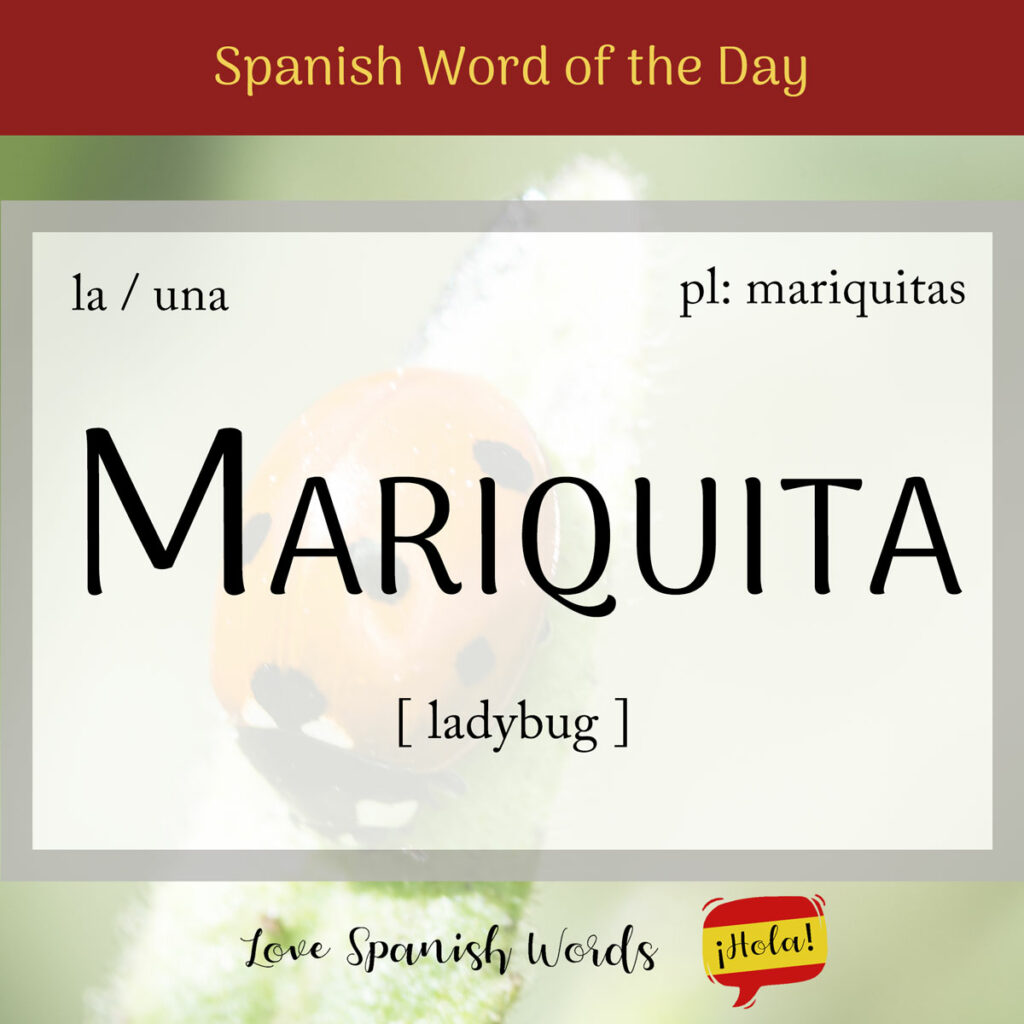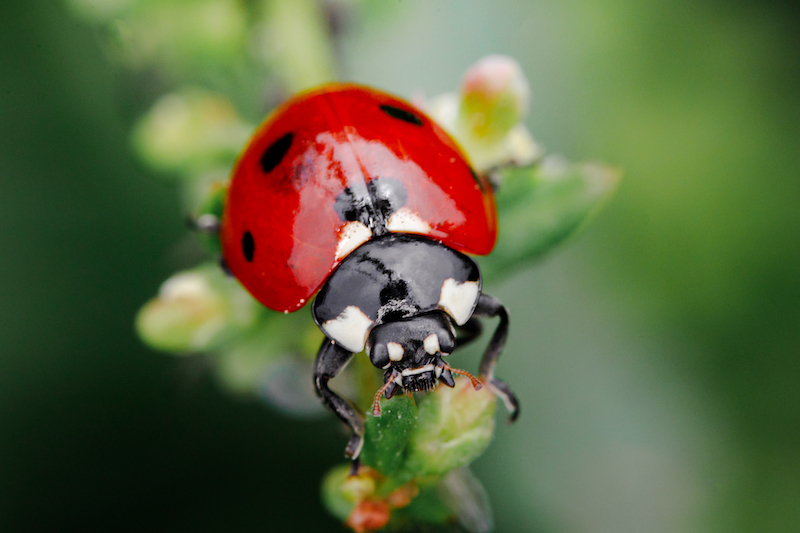One of everyone’s favourite insects is the ladybug (or ladybird if you are from the UK). Its name in Spanish is just as lovely as the insect itself: mariquita.
Latin American Pronunciation
European Pronunciation

This word is the combination of marica (from María, the biblical figure) and the diminutive suffix -ita.
Below are the definite and indefinite articles used for this feminine noun:
- la mariquita = the ladybug
- las mariquitas = the ladybugs
- una mariquita = a ladybug
- unas mariquitas = some ladybugs

Did you know that…?
While mariquita is by far the most widespread term for ladybug cross Spanish-speaking countries, it isn’t the only one. These insects are also known as vaquitas de San Antonio in Argentina, catarinas in Mexico, chinitas in Chile, sarantontones in the Canary Islands, xoaniña or maruxiña in Galacia, and San Antonio in Uruguay.
No todas las mariquitas tienen puntos en sus alas.
Not all ladybugs have spots on their wings.

Mariquita is also an informal and offensive word for a homosexual person (though not nearly as offensive as the similar sounding marica). When used in this way, it becomes a masculine noun (el / un mariquita). In addition to gay, it can also mean wimp or wuss. It’s worth noting that, as is often the case with swear words, friends and gay people themselves tend to use it among themselves in a joking or light-hearted manner.
In Mexico, it is also a way of referring to pot or grass. As a name, with a capital M, it is the familiar form of María.
Curiously mariquita is also the name given to the yellow-shouldered blackbird (mariquita de Puerto Rico).

